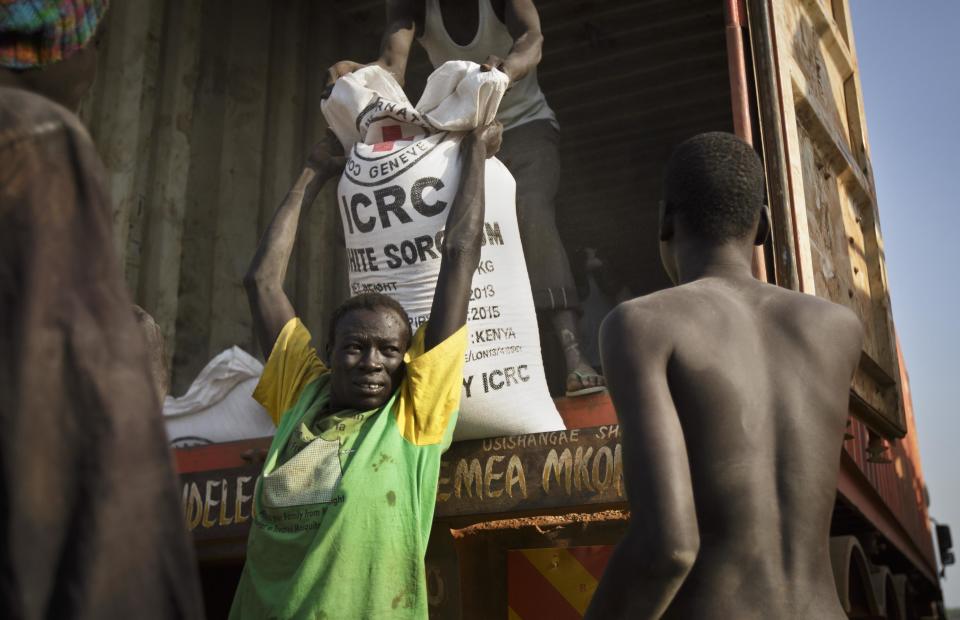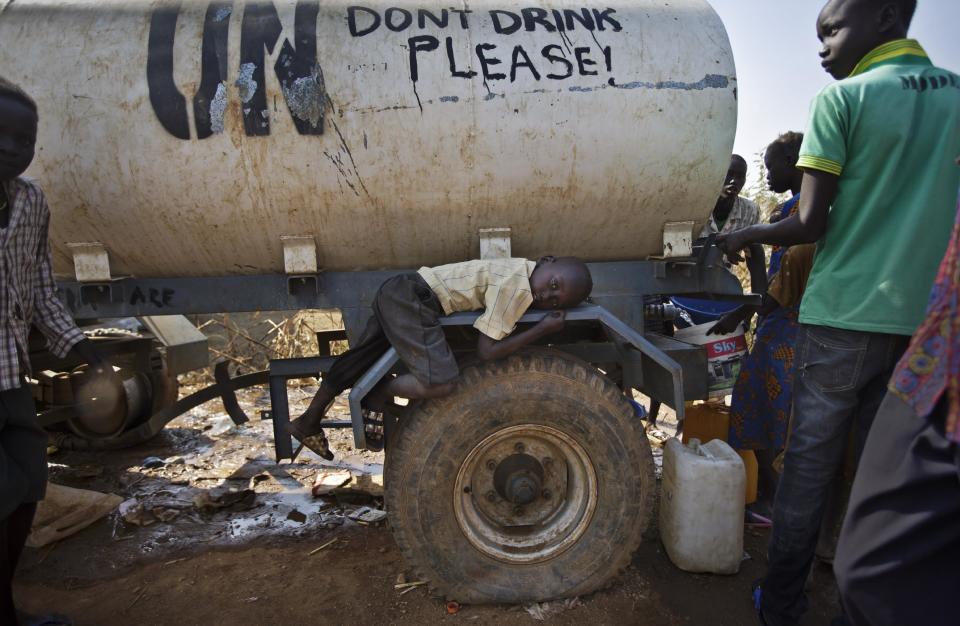UN chief condemns hijacking of aid in South Sudan
UNITED NATIONS (AP) — U.N. Secretary-General Ban Ki-moon on Wednesday strongly condemned the commandeering of humanitarian vehicles and the theft of food and other desperately needed aid by government and anti-government forces in violence-torn South Sudan.
The U.N. chief expressed alarm at the rising number of deaths in the fighting in the world's newest nation, spokesman Martin Nesirky said.
Oil-rich South Sudan has a history of ethnic rivalry. The fighting often pits the Dinka ethnic group of President Salva Kiir against the Nuer group of Riek Machar, the former vice president who now commands renegade forces.
Fighting between loyalist troops and renegade forces since mid-December, largely along ethnic lines, has left nearly 10,000 people dead, according to one estimate by an International Crisis Group analyst.
The secretary-general singled out the reported deaths of 200 civilians fleeing violence in Malakal in Upper Nile state who drowned when their boat sank in the Nile on Saturday.
Nesirky said a teen who sought shelter at the U.N. peacekeeping base in Malakal was killed by gunfire that entered the compound Tuesday, and dozens of civilians and a U.N. military officer were wounded.
Nesirky said the U.N. mission reported Wednesday that fighting has stopped in Malakal but sporadic gunfire can be heard some distance from the U.N. base, where some 20,000 civilians are being protected. The mission also reported loud explosions and gunfire in the vicinity of its base in Bor, he said.
Doctors Without Borders, the medical humanitarian organization, said Wednesday its teams in Malakal and Nasir in Upper Nile have treated 116 people who suffered gunshot wounds, a sign of how intense the latest fighting has been.
Spokesman Raphael Gorgeu said the fighting has limited the organization's ability to reach people who have fled.
The U.N. chief also expressed concern at the rising number of people displaced by the fighting, which surpassed 400,000 this week, and the challenges humanitarian workers face, Nesirky said.
Ban called on all parties to stop the violence and engage in peace negotiations in Addis Ababa, Ethiopia, led by a bloc of East African countries known as IGAD, the spokesman said.
In Addis Ababa, a signing ceremony between the two sides had been expected Wednesday evening, but it was postponed.
That mirrored a political cancellation in Juba, South Sudan's capital, where journalists gathered to hear a statement by president Kiir only to have the announcement cancelled.
Presidential press secretary Ateny Wek Ateny denied rebel claims that Malakal was under their control and insisted the government and army retook the town Tuesday. He said late Wednesday that rebel fighters made a push on Malakal around 4 p.m. local time but government forces repelled them.
"The president warned the despicable perpetrators of destabilization who hoped to intimidate, divide and cause despondency among South Sudanese. They would like South Sudan to retreat into a closed and fearful and fractured society where trust, unity and enterprise are difficult to muster," Ateny said.
Deputy Secretary-General Jan Eliasson told a U.N. meeting on genocide prevention that the U.N. decision to open its peacekeeping bases in South Sudan, where some 65,000 people have sought refuge, has saved thousands of lives.
___
Associated Press reporters Ilya Gridneff in Juba, South Sudan and Elias Meseret in Addis Ababa, Ethiopia contributed to this report.





